Expat world
Whilst we have lived abroad before, I never really felt like an expat, even though we spent our ten years in Cape Town. So, its quite a different experience landing squarely in expat land, here in Istanbul. I guess the main defining difference is language, as all of us who don’t speak the language of the new country, are automatically grouped together as non-locals, and therefore expats. Whereas in Cape Town, our life seem to meld nearly seamlessly into the lives of ordinary South Africans, although of course, the divide there is not local and expat, but white, black and coloured. If I think back to Billy and Daisy’s schools, there weren’t that many different nationalities, but mostly South Africans, and as our friends were mainly South Africans, with a handful of Brits thrown in, we felt as if we merged into South African society.
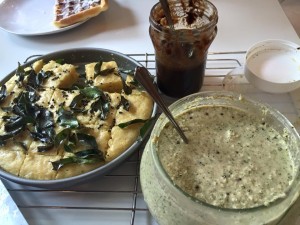
So, for the first time in my life, I’ve joined a bookclub and I love it! It is a totally new experience for me and whilst bookclubs are not limited to international communities, they take on an added dimension, by their very ‘internationalness’. Because an expat community is always changing, then the bookclub’s members are also changing. We are busy organising our farewell dinner for those that are going, but have just welcomed two new members.
Our bookclub has so many different nationalities represented – Pakistani, Swedish, French, Irish, Bulgarian, Indian, Dutch, German, Amercan, Russian, Australian. and me, the token Brit – which leads to very interesting discussions with varying viewpoints.
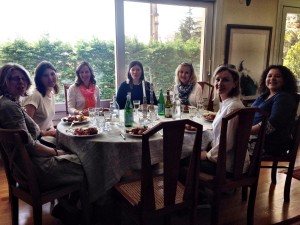
This week we were lucky enough to be invited to Umbereen’s house, and whilst of course the focus is the discussion of the book, I was particularly looking forward to Umbereen’s Pakistani food. In case you’re dying to know though, this month’s book was a Japanese book called Colourless Tsukuru Tazaki and His Years of Pilgrimage by Haruki Murakami. I have to say that I was not looking forward to reading it as I did not think it would be up my street. However, within a page, I was hooked! I loved the style it was written in and learning about Japanese culture – a good read and highly recommended.
But the highlight of the day, apart from the company of seven wonderful and interesting ladies, was the lunch. Umbereen served us traditional Pakistani food, which I must say, was very different to the Indian food that I know and love. What I particularly liked was that whilst we ate three courses, I certainly didn’t feel overly full at the end, and each course was so well balanced, with different textures and flavours.
We started with some dokhlas, which are made from gram (chickpea) flour. These were served with a coconut chutney and fried curry leaves. Also, there was a wonderful spicy pumpkin on a piece of paratha – all absolutely delicious and interesting flavours.
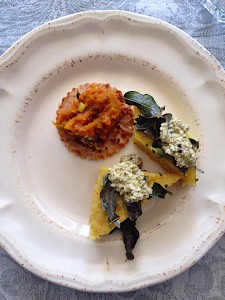
Our main course was a Kashmiri-style chicken leg and this was served with a channa chaat – a salad of chick peas and potatoes with fresh coriander, tamarind chutney, yogurt, pomegranate, red onions, and traditional crunchy sev. Again, wonderful flavours and beautifully balanced.
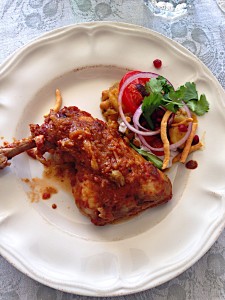
For pudding we had mango and passion fruit ice-cream served with little biscuits that Umbereen had made by dry-frying on the stove top, as traditionally in Pakistan, they don’t have ovens (I had no idea!) This was accompanied by Jasmine tea, which apparently is drunk a lot in Pakistan, although usually it is very sweet, so untraditionally sugar was optional for us!
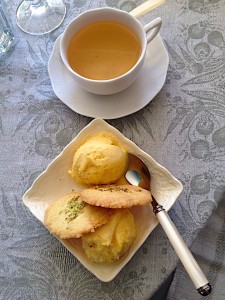
A wonderful lunch – thank you so much Umbereen!